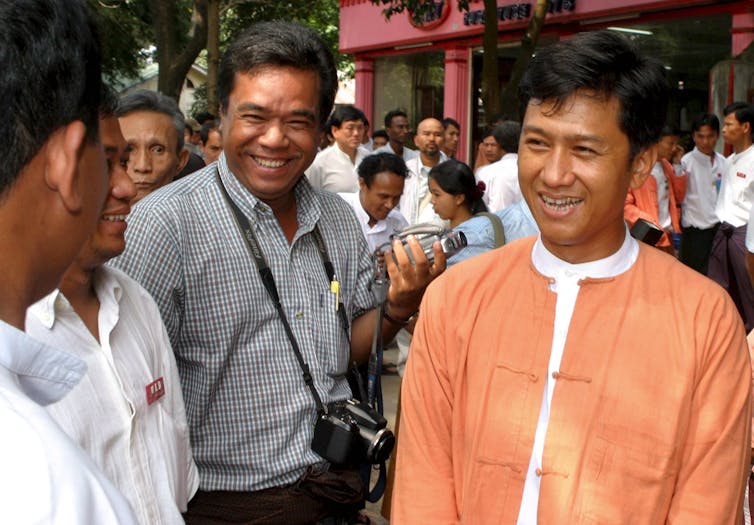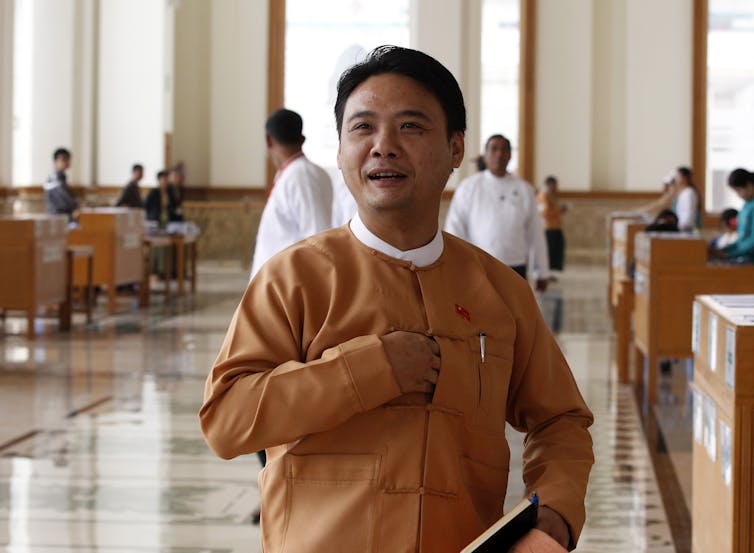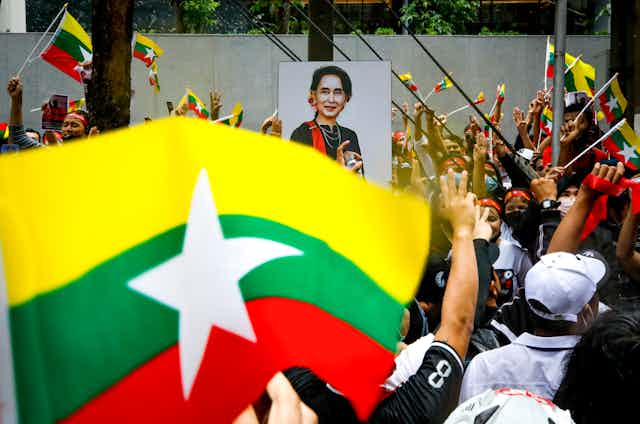Since the 2021 coup, Myanmar’s death penalty moratorium has been a myth. The junta has routinely targeted civilians for extra-judicial killing, including using army snipers to callously pick off peaceful protesters. There have been killings of prisoners too, with many of the dead reportedly exhibiting signs of torture on their bodies. What changed this week was that the junta admitted to the deliberate killing of prisoners.
Four prisoners, representing different strands of anti-coup resistance were executed at Yangon’s Insein Prison breaking a decades-old taboo against capital punishment. None had received anything resembling a fair trial, instead facing a military tribunal where they were denied legal counsel. In practice their “guilt” was predetermined by a Myanmar military, known as the Tatmadaw, that regards active opposition to its rule as akin to terrorism.
The junta’s choice of victims was guaranteed to provoke domestic outrage. Opposed to military rule and accused of terrorism, Kyaw Min Yu, better known as Ko Jimmy was a Myanmar household name, first coming to prominence as a student leader of the “88 generation” that almost toppled a previous military regime in the 1988 Uprising.
Phyo Zeya Thaw, a wildly popular rapper and hip-hop artist who co-founded youth activist group Generation Wave, was also an ex-law-maker close to Aung San Suu Kyi. He too was accused of terrorism. Hla Myo Aung and Aung Thura Zaw were accused of killing a Tatmadaw informant.

Violence as a tactic
Using ferocious violence to cow resistance to its domination has long been a key Tatmadaw strategy, particularly among the country’s ethnic and religious minority communities. Ongoing popular resistance to their 2021 coup, the growth of People’s Defence Force militias, increasing defections and recruitment shortfalls have weakened the Tatmadaw, and prompted junta bosses to bring tactics more familiar to minorities like the Rohingya to the country’s Buddhist heartland. There has been a marked uptick in military brutality towards members of Myanmar’s Buddhist majority.
The Tatmadaw’s counter-insurgency approach, often described as “clearance operations” are derived from its “Four Cuts” strategy aimed at denying opponents access to food, funds, fresh recruits and intelligence. Resembling total war, scorched-earth tactics and the targeting of civilians for collective punishment are a routine part of these operations. This was how the Tatmadaw labelled its forced deportation of the Rohingya Muslim community in 2017
Now the junta is using similar tactics nationwide. Since the coup, military atrocities have been widespread and frequently stomach-churningly awful. These have included air strikes against rural villages and displacement camps in retaliation for nearby anti-coup activity, driving a truck into a crowd of peaceful protesters, and even burning alive civilians fleeing violence. Amnesty International described Tatmadaw air strikes against civilians as “collective punishment” and “a new wave of war crimes and likely crimes against humanity”.

Tom Andrews, the UN special rapporteur for human rights in Myanmar, painted a grim picture: “Junta forces have killed at least 1,600 civilians and displaced over 500,000. Half of the population has fallen into poverty. The World Health Organisation is now projecting that there will be over 47,000 preventable deaths in Myanmar this year. Thirteen million people face food insecurity”. Recent UN data indicates more than 857,000 have been displaced by violence since the coup was launched.
Systematic killings
Even the executions of imprisoned anti-coup leaders mirror a disturbing aspect of the genocide against the Rohingya – the systematic killing of community leaders to undermine the group’s cohesion, capacity and hasten its destruction. Rohingya genocide survivors described how in 2017, community leaders and educated Rohingya were singled out for killing by soldiers, and it seems the junta has adopted the same approach towards anti-coup activists targeting key leaders.
Throughout Myanmar and across the world, the response to the executions, the latest high-profile atrocity from Myanmar, might not be what coup leader general Min Aung Hlaing hoped. Rather than quell opposition to military rule, this escalation has signalled the junta’s vulnerability, highlighting its inability to embed its rule a year and half after launching an unpopular coup.
On the night of the killings, Yangon was filled with the sounds of protesters banging pots and pans – a traditional way to drive out evil spirits that has become a symbol of anti-coup resistance. Rather than being cowed by the murder of her son Phyo Zeya Thaw, Daw Khin Win Tin bravely described her pride that he sacrificed his life for his country.
The international response has been characterised by near universal condemnation. Such was the outrage over the executions, even erstwhile junta supporters China and Russia fell into line with US demands for an end to “business as usual” and agreed to a UN Security Council statement condemning the executions.
Malaysia’s foreign minister, Saifuddin Abdullah, indicated he had run out of patience with the junta, describing the executions as “a crime against humanity and clearly shows that the junta is making a mockery” of the Association of Southeast Asian Nations’ (ASEAN) agreed Five-Point Consensus. This suggests Malaysia will strongly push ASEAN to take a firmer hand with Myanmar’s junta. They need to.
As the regional body, ASEAN’s involvement and agreement to the Five-Point Consensus has provided the junta with a shield, giving world powers like the US and China a plausible excuse to avoid greater engagement with the Myanmar crisis but not requiring the junta to make any changes to its approach.
The US has indicated that all options are now on the table. This should include steps that have the potential to contribute to regime change in Myanmar, such as sanctioning gas revenues and an arms embargo. Otherwise the UN Security Council should prepare to write many more statements of condemnation because the junta has given no indication that words will force it to change its ways.

